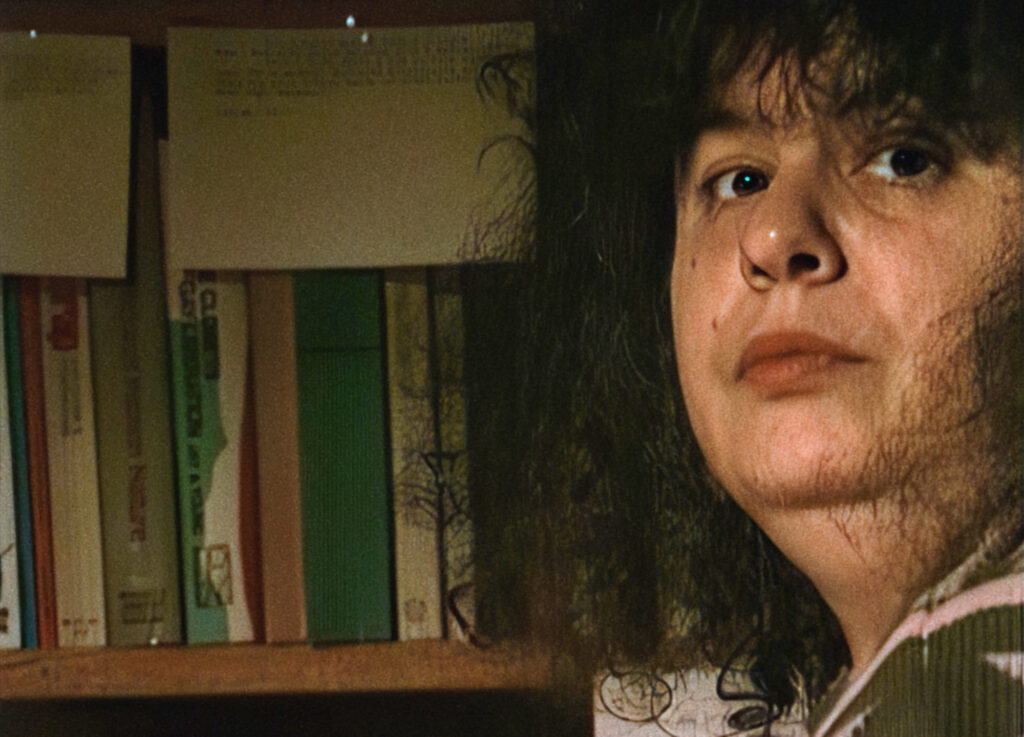Pratibha Parmar is an award-winning British writer, director, and producer. Pratibha has worked across multiple genres – feature documentaries, short dramas, music videos, a narrative feature, and is a recent director of episodic television, “Law & Order: SVU” and Ava DuVernay’s “Queen Sugar.” Her work has appeared in a variety of broadcast and theatrical platforms.
“My Name Is Andrea” is screening at the 2022 Tribeca Film Festival, which is taking place June 8-19.
W&H: Describe the film for us in your own words.
PP: A genre-defying film that pushes the boundaries of storytelling to evoke the life of a woman whose experience of male violence was the unflinching compass for her writings and activism against toxic patriarchy. Andrea Dworkin was the punk rock of feminism and a poet of rage.
W&H: What drew you to this story?
PP: I was drawn to Dworkin’s story after reading her book “Heartbreak: The Political Memoir of a Feminist Militant” and also her book “Mercy.” Both books have a poetical language that speaks to her visceral experience of violation but also of her ambition to be a writer — “a genius of a writer” — yet being thwarted at every step because of the sexual abuse she experienced. How many women’s dreams and desires to be fully realized human beings have been struck down repeatedly and how can Dworkin’s life resonate for other women, was something I was interested in exploring.
W&H: What do you want people to think about after they watch the film?
PP: I can’t really be prescriptive. There is plenty in the film that provokes thought and strong emotions and I am quite sure that audiences will have lots to think and talk about after they have seen the film.
Andrea Dworkin speaks to our times and her voice is prescient for this moment when there is a concerted campaign to strip women of their rights and especially their/our right to bodily integrity.
W&H: What was the biggest challenge in making the film?
PP: Funding or lack of it. Far too many funders inability to step out of the box of what they expect from a documentary film. The style of the film is original. It’s hybrid — it’s poetic, it’s visceral, and it’s direct. It’s not investigative journalism with stats and talking heads or a conventional biopic.
I was interested in using images, sounds, and Dworkin’s voice to craft something both emotional and informational, something demanding and nuanced and at the same time accessible. Getting this intent through to funders was a herculean task.
W&H: How did you get your film funded? Share some insights into how you got the film made.
PP: Crowdfunding in the first instance, mostly a lot of sweat equity from myself and my producer, Shaheen Haq, and crucially a feminist village of EPs who rallied around.
Early on we received a small grant from Sundance Doc Institute when Rahdi Taylor was Head of the Sundance Documentary Fund. She was very supportive of my vision for the film.
W&H: What inspired you to become a filmmaker?
PP: Primarily to tell stories that might help create change, whether it is to make South Asian LGBT people visible to ourselves and to each other (“Khush”) or to celebrate women who have shaped and changed history like Angela Davis, June Jordan (“A Place of Rage”), Alice Walker (“Beauty In Truth”).
W&H: What’s the best and worst advice you’ve received?
PP: The best advice was to keep going. The worst advice was being told to give up.
W&H: What advice do you have for other women directors?
PP: Hold out for your vision but be willing to be flexible and collaborative. Be daring. Be bold.
W&H: Name your favorite woman-directed film and why.
PP: For me, Agnès Varda’s “Vagabond” is a stunning, austere cinematic poem and belongs in cinema’s universal canon. Centering on the story of a young woman, a vagrant, and an outcast, Varda’s brilliant weaving of fiction, documentary, and musical set-pieces is a work of sublime grace going beyond story and into the crevices of the human condition. “Vagabond” is quintessential filmic writing (cinécriture) and sets the bar for the embodied female gaze on and off screen.
I wrote this [description] for The Guardian when I was asked which film I thought should belong in the universal cinematic canon.
W&H: How are you adjusting to life during the COVID-19 pandemic? Are you keeping creative, and if so, how?
PP: I have never been busier. We finished shooting “My Name Is Andrea” during the pandemic and I also directed an episode of “Law & Order: SVU” for NBCUniversal earlier this year.
W&H: The film industry has a long history of underrepresenting people of color onscreen and behind the scenes and reinforcing — and creating — negative stereotypes. What actions do you think need to be taken to make Hollywood and/or the doc world more inclusive?
PP: In brief, the funding hierarchy needs to change as much as the need to expand the roster of storytellers. There is much talk about inclusion and diversity but too often it’s performative and gestural.
However, what is hopeful and brilliant is that orgs like Firelight Media and Brown Girls Doc Mafia keep growing to harness the resources in the doc world. More recently Riz Ahmed’s Pillar Foundation is amplifying Muslim voices in the documentary world, again crucial at a time of intense Islamophobia. And then you have the visionary brilliance of Ava DuVernay who has changed and continues to change the Hollywood narrative by enabling voices and visions of storytellers who fall outside of the white male gaze. So change is definitely unstoppable.







